Restaurant Diary is a biweekly series where food writer Clementine Hecker reviews restaurants that stand out among the millions of options in New York City’s restaurant scene.
The first time I walked by Kopitiam, a traditional Malaysian coffeehouse on the Lower East Side, it was closed. But as I peered in through the glass door to read the menu, it immediately became a top priority on my restaurant list.
If a Malaysian dish had crossed my path before, I didn’t have the vocabulary to recognize it. But after going to Kopitiam, I learned Malaysian food is saturated with influence. Chinese, Thai, Indian, and British flavors mingle in Nyonya cooking, the specific hybrid of Chinese and Malay that the owner Kyo Pang brings to New York with Kopitiam.

Thanks to Kopitiam, I now know that the national dish of Malaysia is Nasi Lemak ($8.50), a simple but delicious dish consisting of fried anchovies and peanuts over coconut rice accompanied by fresh cucumber and a boiled egg.
Looking around at the food being eaten in Kopitiam’s dining room, the wide color palette of Nyonya food is evident. Vibrant yellows from egg yolks contrast against the deep red of fried beans and anchovies. An unexpected bright blue speckles many of the rice dishes making even the most savory dishes look like desserts. The presentation and setting in the space are quite casual, but every dish comes out of the kitchen looking immaculate. The balance of textures and colors is delicious to the eyes as well as the mouth.
Kopitiam advertises itself as a coffee shop, with the literal translation of its name in Hokkien (a variety of Chinese spoken in Malaysia) being “coffee house.” The spot is famous for the traditional Malaysian street-style coffee that is strained through cloth and often paired with condensed or evaporated milk rather than whole milk. The drinks are served in plastic bags that look like IV drips, a presentation I found unexpectedly charming rather than gimmicky. While it may be the selling point, the coffee menu flew entirely over my head when I saw the piles of hand-pulled noodles, dumplings, and soups being eaten beside me.
The menu reveals much more than coffee. From crispy duck tongue ($13) to Malaysian-style egg french toast ($12) — calling it a “coffee shop” and filing it among the seemingly infinite cafes that populate New York is a massive understatement to what the restaurant has to offer.
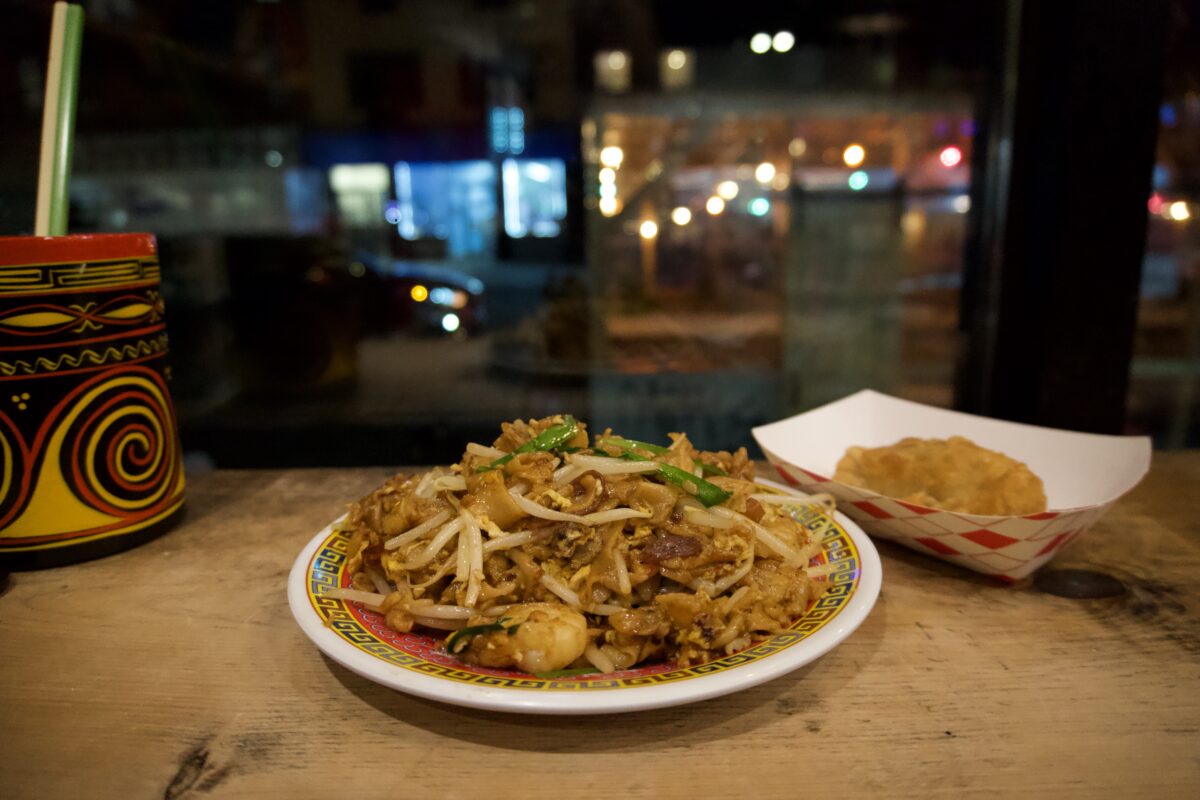
The extensive menu goes far past what any regular coffee shop serves and can even be a little overwhelming at first glance. Without familiarity with Malaysian dishes and ingredients, I couldn’t picture what I was ordering. However, they seem to be aware of this possible confusion and have provided a list of set meals called the “no idea” menu. The $25 set menu includes three classic dishes from the all day breakfast menu and one kopi (coffee). If you are still stumped on what to order, don’t fret, at Kopitiam every item is an adventure. One of my favorites is the Tok Tok Mee: street-style egg noodles topped with cha shui (pork belly with more of a smoked or cured texture than is standard with Japanese or Chinese pork belly), two crispy wontons full of pork and shrimp next to yao choy greens, and a pool of the house dark sauce marinating at the bottom.
The house sauces elevate the food and make it stand out from other East Asian flavor pallets. Complex and rich, the sauces are never too heavy or sweet. In the Tok Tok Mee, the noodles are not coated in sauce, instead you dip them down into the reservoir of rich, sweet liquid and swirl it around, making the perfect bite each time.
Under the snack category, the Pandan Chicken ($8) — minced chicken triangles wrapped in Pandan leaves — is delicious. Sweetness is a main player in many of the dishes at Kopitiam, it shows up brightly in the chili sauce and in the light juices that run out of the triangles of chicken as you unwrap them from their packaging (don’t eat the leaves).
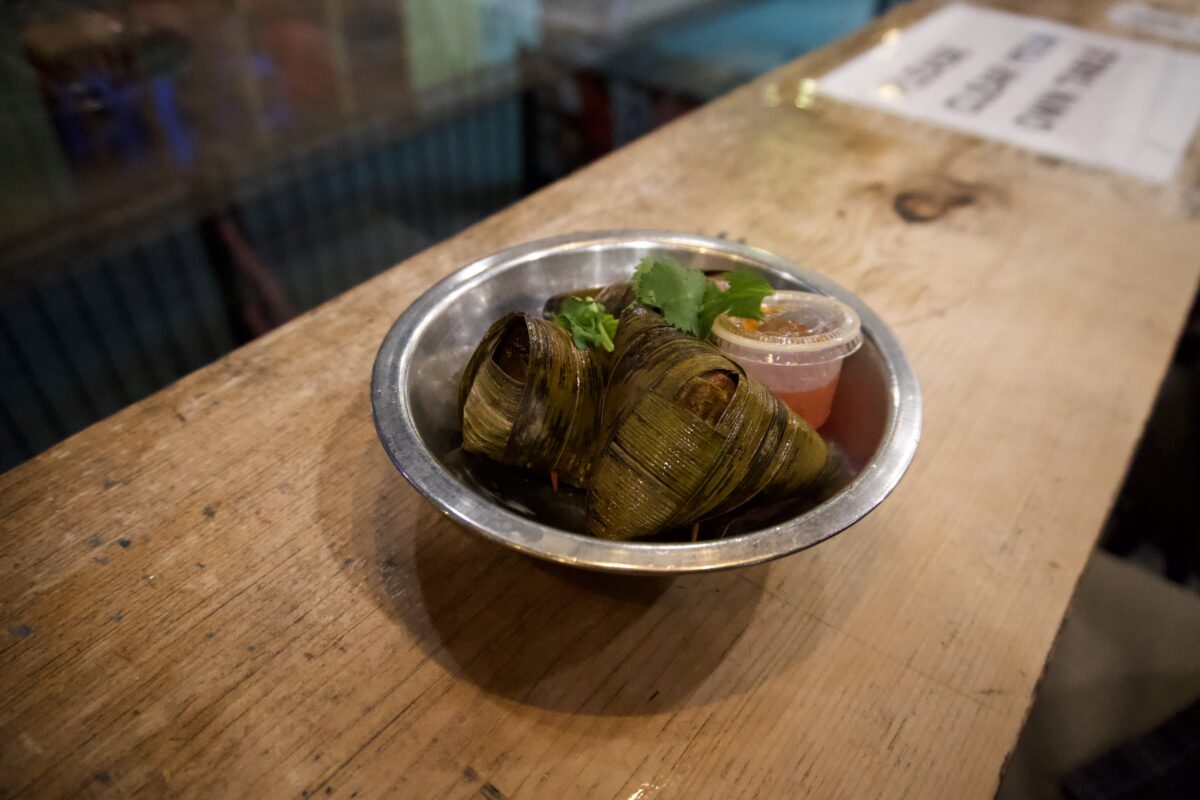
Some of the menu items note the allowance of 15 to 25 minutes when ordering. During a quieter time this is rarely the case, but during busy hours receiving food can become chaotic. The Pan Mee ($16) is a dish definitely worth the wait for the hand-pulled, made-to-order noodles. I recommend ordering the soup version where the wood ear, shiitake mushrooms, anchovies, and pork float amongst the chewy noodles in an anchovy broth. There are more unique textures in this one dish than I have experienced in entire cuisines.
I now frequent Kopitiam and have my favorite dishes and places to sit. I know what to order when I need to be warmed up from the winter air and when I need a blast of spice to wake me up. I’m familiar with the space, but I haven’t had every dish, so until then it will stay at the top of my restaurant list.
Kopitiam is located at 151 East Broadway New York, NY, 10002.

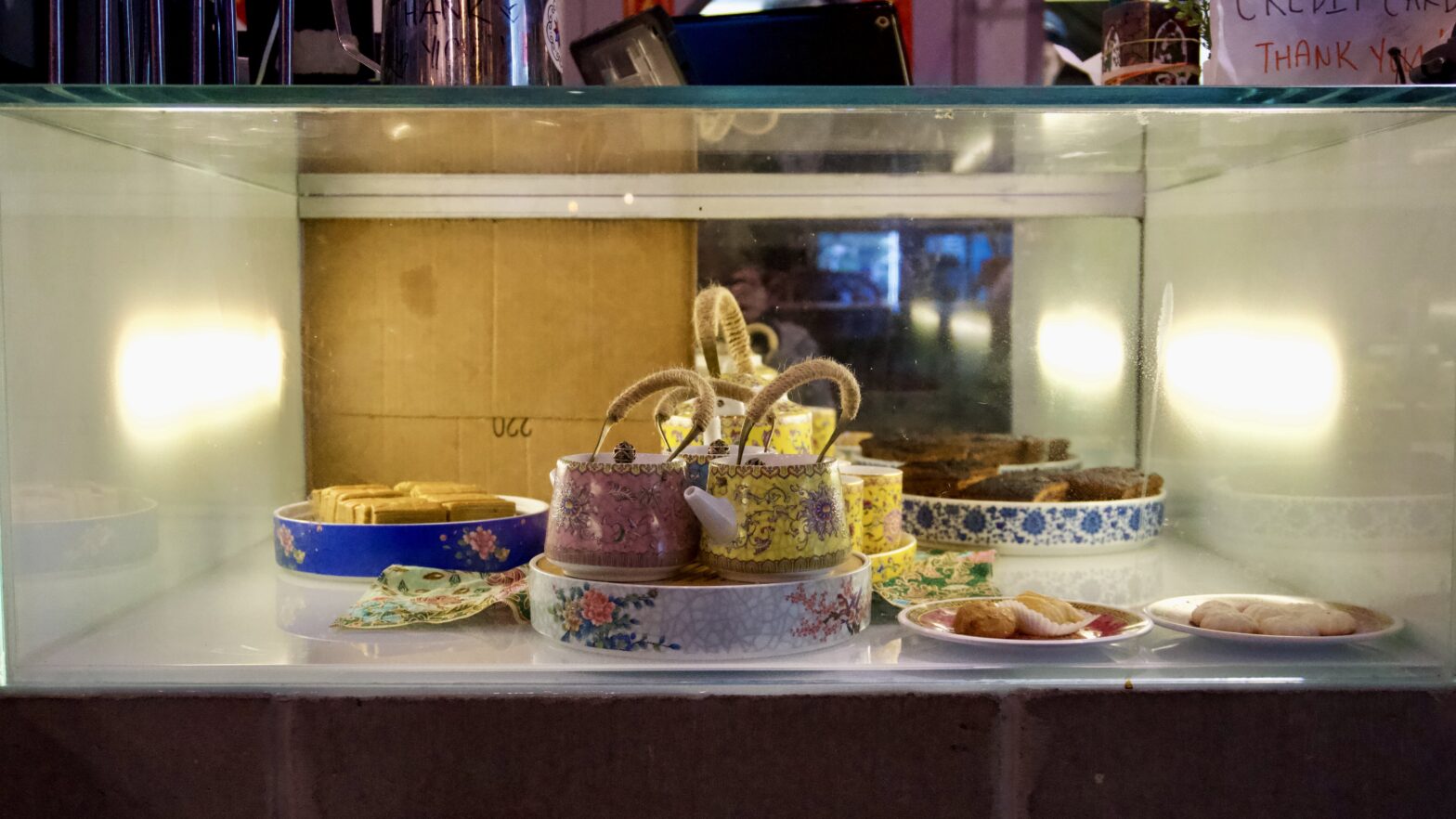

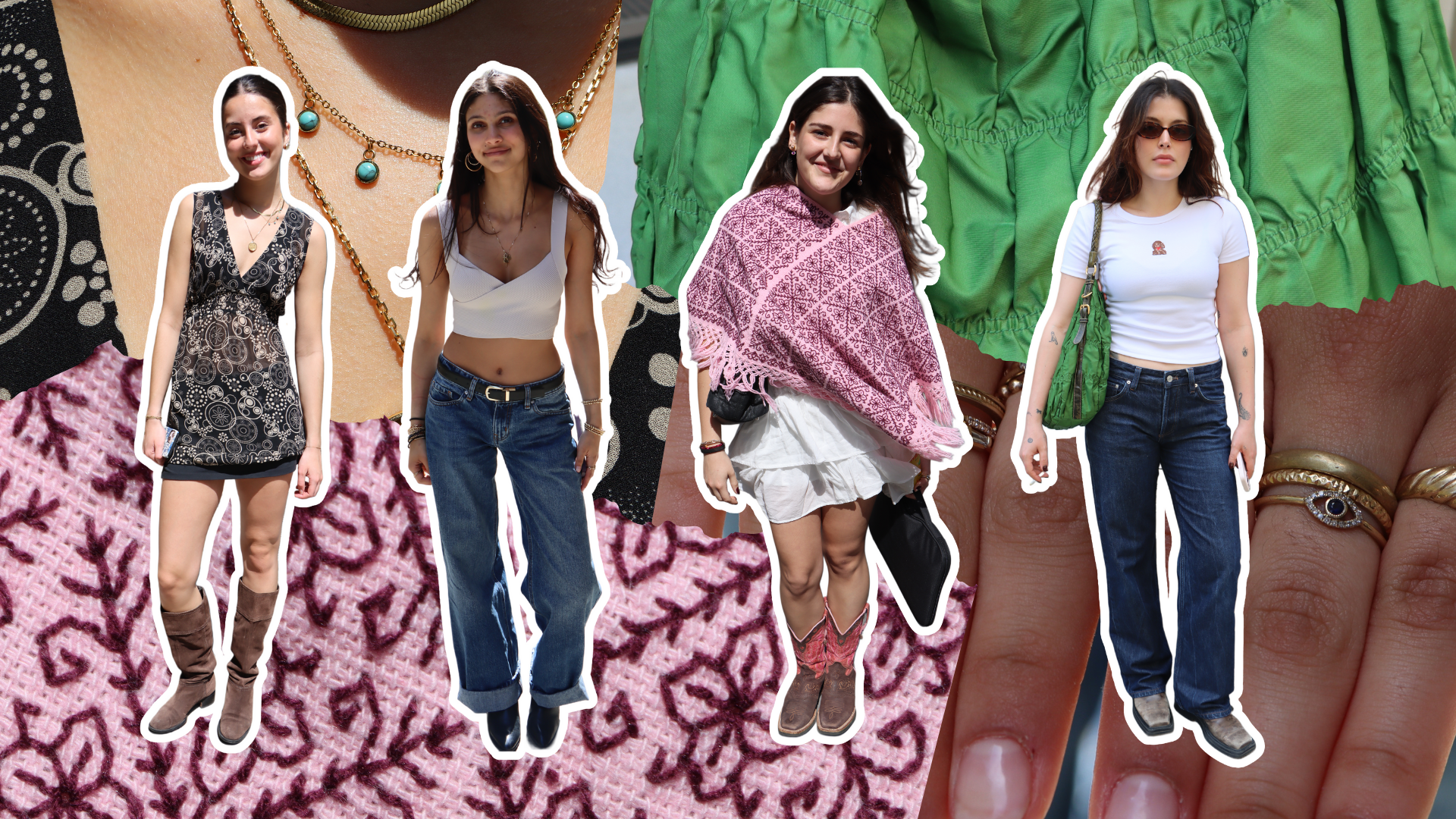


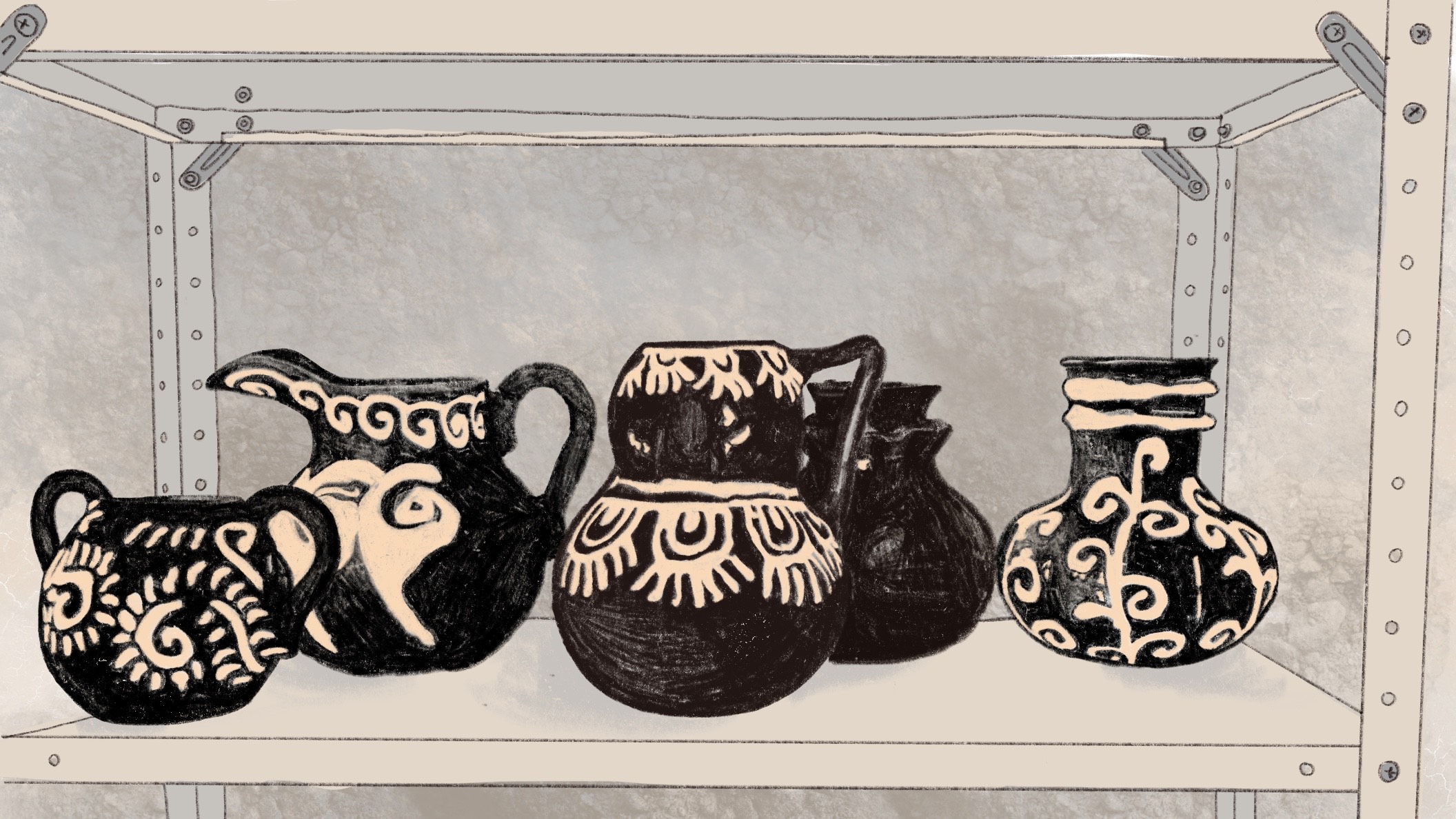
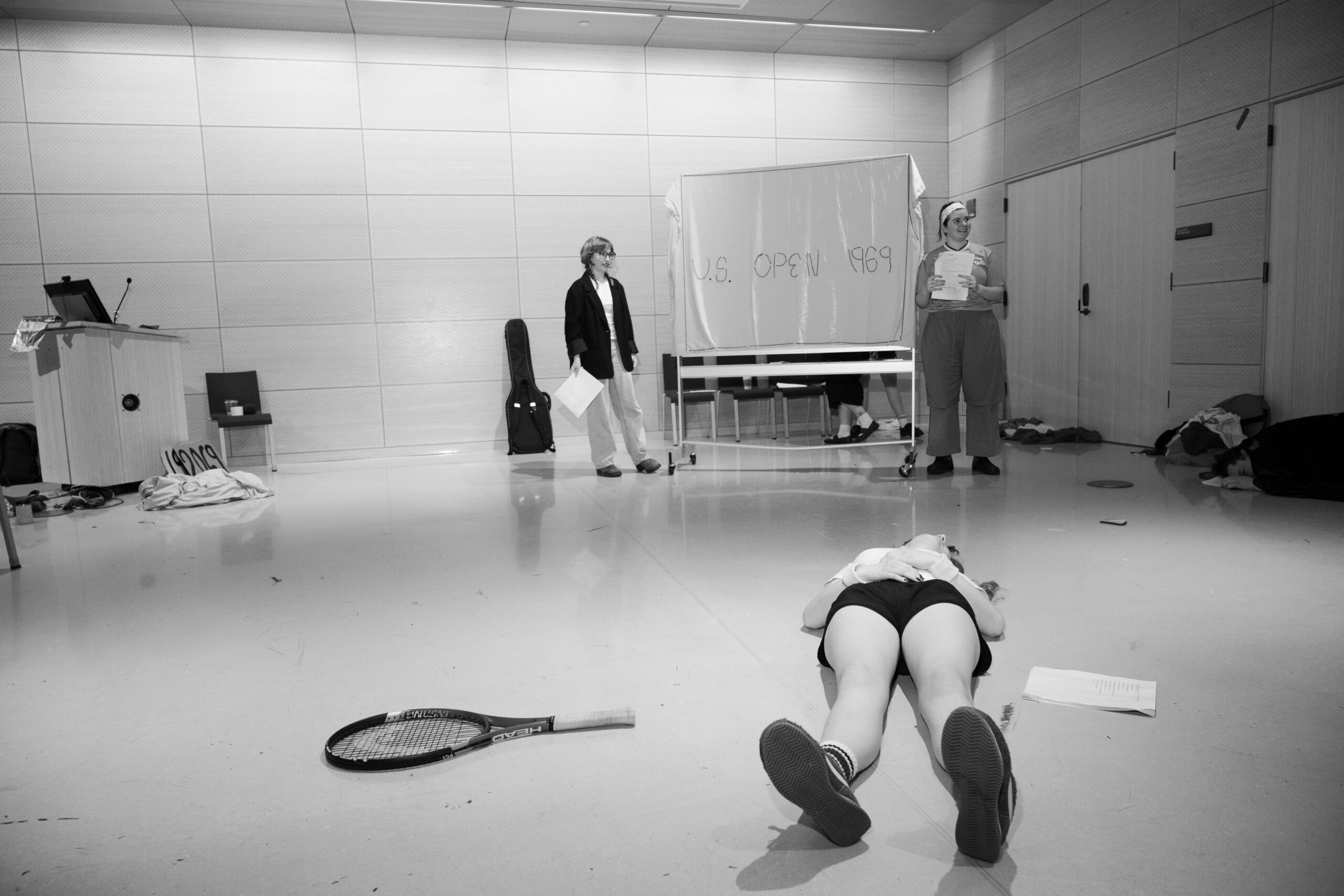
Leave a Reply